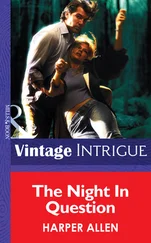Richard Gordon - A QUESTION OF GUILT
Здесь есть возможность читать онлайн «Richard Gordon - A QUESTION OF GUILT» весь текст электронной книги совершенно бесплатно (целиком полную версию без сокращений). В некоторых случаях можно слушать аудио, скачать через торрент в формате fb2 и присутствует краткое содержание. Жанр: Юмористическая проза, на английском языке. Описание произведения, (предисловие) а так же отзывы посетителей доступны на портале библиотеки ЛибКат.
- Название:A QUESTION OF GUILT
- Автор:
- Жанр:
- Год:неизвестен
- ISBN:нет данных
- Рейтинг книги:4 / 5. Голосов: 1
-
Избранное:Добавить в избранное
- Отзывы:
-
Ваша оценка:
- 80
- 1
- 2
- 3
- 4
- 5
A QUESTION OF GUILT: краткое содержание, описание и аннотация
Предлагаем к чтению аннотацию, описание, краткое содержание или предисловие (зависит от того, что написал сам автор книги «A QUESTION OF GUILT»). Если вы не нашли необходимую информацию о книге — напишите в комментариях, мы постараемся отыскать её.
A QUESTION OF GUILT — читать онлайн бесплатно полную книгу (весь текст) целиком
Ниже представлен текст книги, разбитый по страницам. Система сохранения места последней прочитанной страницы, позволяет с удобством читать онлайн бесплатно книгу «A QUESTION OF GUILT», без необходимости каждый раз заново искать на чём Вы остановились. Поставьте закладку, и сможете в любой момент перейти на страницу, на которой закончили чтение.
Интервал:
Закладка:
Richard Gordon
A QUESTION OF GUILT
THE CURIOUS CASE OF DR CRIPPEN
First Published in 1981
It is Sunday afternoon, preferably before the war. The wife is already asleep in the armchair, and the children have been sent out for a nice long walk. You put your feet up on the sofa, settle your spectacles on your nose, and open the _News of the World._ Roast beef and Yorkshire, or roast pork and apple sauce, followed up by suet pudding and driven home, as it were, by a cup of mahogany-brown tea, have put you in just the right mood. Your pipe is drawing sweetly, the sofa cushions are soft underneath you, the fire is well alight, the air is warm and stagnant. In these blissful circumstances, what is it that you want to read about? Naturally, about a murder.
_George Orwell_
'Cor blimey! You ought to see the landlady-what a face-Crippen was innocent!'
_Music-hall joke_
Dr Hawley Harvey Crippen was sentenced to death at the Old Bailey in London on October 22, 1910, for the murder of his wife Belle Elmore, the music hall artiste. Three days later, Ethel Le Neve was accused in the same court of being an accessory after the fact. The Crippens were Americans who had settled in north London at Hilldrop Crescent. Part of Belle Elmore's remains were dug from the cellar floor. Her head and her bones were never found.
1
The meal had the ill-subdued restlessness of a headquarters' mess on the eve of battle. Men came and went with terse apologies. Silences scudded across the room like the shadows of clouds flying in the moonlight over the snow-dusted Norfolk countryside. The voracious fireplace roared with plenteous logs from the estate. The long shiny tablecloth was brightened by mauve and yellow fresias, between two silver stands piled with grapes, peaches and tangerines. The Royal Household was at dinner.
That evening had assembled only a handful of the 322 persons under the Lord Chamberlain's command. These included lords in waiting and gentlemen ushers. Comptrollers, almoners and clerks of the closet. Ladies-and women-of the bedchamber. Gold Stick and Black Rod. The mistress of the robes, the master of the horse. The poet laureate, the bargemaster and the keeper of the swans. Nineteen doctors, and in case of their failure, a royal coroner.
Upstairs, the King lay dying.
Eliot entered at half-past eight. It was Monday, January 20, 1936. His eye caught a typed place card-
SIR ELIOT BECKETT VC KBE MD FRCP.
Gallantry rightly takes precedence on brains, he thought.
'Isn't your wife having dinner?' asked Lord Dawson of Penn, as Eliot sat beside him.
'Nancy's with the Queen.'
'Excellent. I'm sure she'll steady the Queen's nerves better than any dose I could prescribe.'
Eliot reached for the menu in its silver clip with the royal arms. Potato soup, turbot and roast mutton. He supposed one man's death was no reason for another going without his dinner.
Eliot Beckett was 53, tall and lean, the strong bones of his face a memorial to youthful good looks. He brilliantined his thick dark hair, and trimmed his moustache like Ronald Colman's. Noticing the grandfather clock, he glanced automatically at his wristwatch. 'Why should the time at Sandringham be half an hour faster than the rest of the world?'
'For punctuality at King Edward VII's shooting parties,' Dawson told him.
'King Edward the Seventh! But he hasn't shot for twenty-five years, unless over the Elysian fields.'
'Ah! From royal whim to unshakable tradition is an easy step in this country.'
Eliot was new to Sandringham. The 11,000 acre estate on the marshy north Norfolk coast against the Wash had cost the former King Edward a quarter of a million pounds. The long, low redbrick house could never contain the exuberant generosity of his hospitality. As a young doctor with an empty pocket, a full heart, low prospects and high principles, Eliot had warmed himself agreeably with indignation at the dozen royal balls there a season, the elaborate shooting of ten thousand pheasants, the "King's Special" steaming daily from London, loaded with guests in their tweeds and furs, with their guns and dogs, their leather luggage polished like saddles by their packs of servants.
In York cottage beyond the lake, a villa of suburban glumness overwhelmed by shrubbery, the King's son George played bluff naval officer turned blunt squire and waited for the throne. Now King George V, a quarter of a century later, lay comatose over their heads, his quitting the world only another regal formality.
'The King went downhill very rapidly this afternoon.' Eliot refused wine from the tail-coated footman.
'That Privy Council meeting this morning severely taxed him,' said Dawson. 'Yet it was nothing but a tragic pantomime. The King sat in his dressing-gown, leaning on a bed-table across an armchair. He could make only a couple of "Xs" for his signature.'
Dawson was the only medical man among 400-odd politicians sworn as a Privy Councillor. He seems to collect honours as an actress compliments, Eliot thought. Dawson had a taut face, straight eyebrows and a bushy moustache. He was genial, sensitive, ambitious and impatient. As the King's physician, he had penetrated British consciousness like airwoman Amy Johnson or cricketer Jack Hobbs. His name footed the brief handwritten bulletins policemen hung on Buckingham Palace railings when the King was near death before, in 1928. He was the man the newspapers telephoned for a doctor's view on the Modern Girl, the Motor Age or Whither Europe? Eliot heard that the King chose Dawson as his doctor because he never fussed and was good with dogs and horses.
'Why hold the meeting at all?' asked Eliot.
'Ramsay MacDonald insisted. He wanted a Council of State to hold power during the King's incapacity. As in 1928. MacDonald's a terribly nervy fellow, you know.'
'Isn't the King's death a favourite moment for revolution? Lord Wigram can tell us.'
On Eliot's right was a straight-backed, smooth-faced man with a clipped moustache, a former Bengal Lancer in his mid-sixties. He wore a starched shirt and dinner-jacket. A dying King created difficulties of convention-no gentleman in the 1930s dined in a lounge suit, but doctors could hardly attend the sickbed as though dressed for the play. Eliot and Dawson retained their professional uniform of morning coats, striped trousers and wing collars.
'Yes, indeed,' said Wigram, the King's private secretary. He could talk of constitutional subtleties like the King's butler of the wines in his cellar. 'On the death of King Edward, a troop of Life Guards was under orders at Albany Street Barracks, ready to be turned out within five minutes of a trumpet call.'
'Perhaps I deserved their attentions?' suggested Eliot. 'Remember, I was a bolshevik. I'd probably have stood cheering, if we'd cut the hedonistic old gentleman's head off in Whitehall like Charles the First's.'
'You cannot make our flesh creep,' Dawson chaffed him. 'Even Mr Pickwick's Fat Boy had to grow up. Wigram, we shall need to compose a bulletin.'
'Yes. I looked out the final one on King Edward in 1910.' Wigram efficiently produced a folded sheet from his inside pocket.
'I know what it says. I signed it,' Dawson reminded him. "His Majesty's condition is now critical" was stark enough for the morning papers. Now we have the wireless. The BBC will want something to put on the air between nine and ten, when people start going to bed. We must send a message which will touch their hearts.'
Dawson reached for the menu card in its clip, and wrote quickly on the back-
_The King's life is moving peacefully towards its close._
Читать дальшеИнтервал:
Закладка:
Похожие книги на «A QUESTION OF GUILT»
Представляем Вашему вниманию похожие книги на «A QUESTION OF GUILT» списком для выбора. Мы отобрали схожую по названию и смыслу литературу в надежде предоставить читателям больше вариантов отыскать новые, интересные, ещё непрочитанные произведения.
Обсуждение, отзывы о книге «A QUESTION OF GUILT» и просто собственные мнения читателей. Оставьте ваши комментарии, напишите, что Вы думаете о произведении, его смысле или главных героях. Укажите что конкретно понравилось, а что нет, и почему Вы так считаете.






